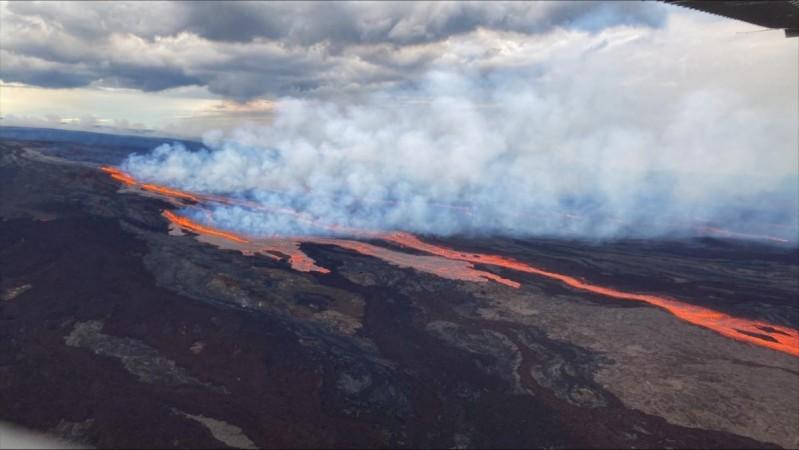The world's largest active volcano, the Mauna Loa in Hawaii, has prompted the US National Guard to help as residents and tourists flock to witness the rare scene.
Since its eruption on November 27, Mauna Loa has been shooting jets of lava toward the sky and down the massive mountain, reports Xinhua news agency.
While officials said there is still no immediate risk to communities on Hawaii's Big Island, lava has now crept within 2 miles of the main highway connecting the eastern and western halves of the Big Island.

"The leading edge of the lava flow continues to have minimal movement ... and is approximately 2 miles from Daniel K. Inouye highway," the County of Hawaii's hazards website said on Tuesday.
"It does not pose a threat to any communities at this time."
During the past 24 hours, the lava flow advanced at an average rate of about 25 feet per hour (8 metres per hour), according to the update of the US Geological Survey (USGS) on Monday.
Though the advance rate has slowed in the past several days, the lava flow remains active with a continuous supply from one active fissure, known as the fissure 3 vent, according to the USGS.
As residents and tourists flocked to witness the rare eruption, officials have enlisted the help of the National Guard.

Hawaii's Defence Department said Governor David Ige and Major General Kenneth Hara activated 20 Hawaii National Guard service members and placed them on active duty.
Officials also created a safe viewing spot on a one-way route accessible through the Daniel K. Inouye Highway, said the Hawaii County Civil Defense Agency.
"If the eruption continues, it might cover the highway. But at this stage, it's still about 2.3 miles away from the highway. But it is advancing every day," said Natalia Deligne, a volcanologist with the USGS at the Hawaiian Volcano Observatory.
"We don't know how long this eruption is going to last, and that will dictate whether or not the highway becomes more threatened," Deligne said.
The Mauna Loa volcano is erupting for the first time since 1984.
In the week since the eruption, the stream of lava has coursed northeast, away from the volcano's summit.
The eruption has attracted waves of visitors.
(With inputs from IANS)















